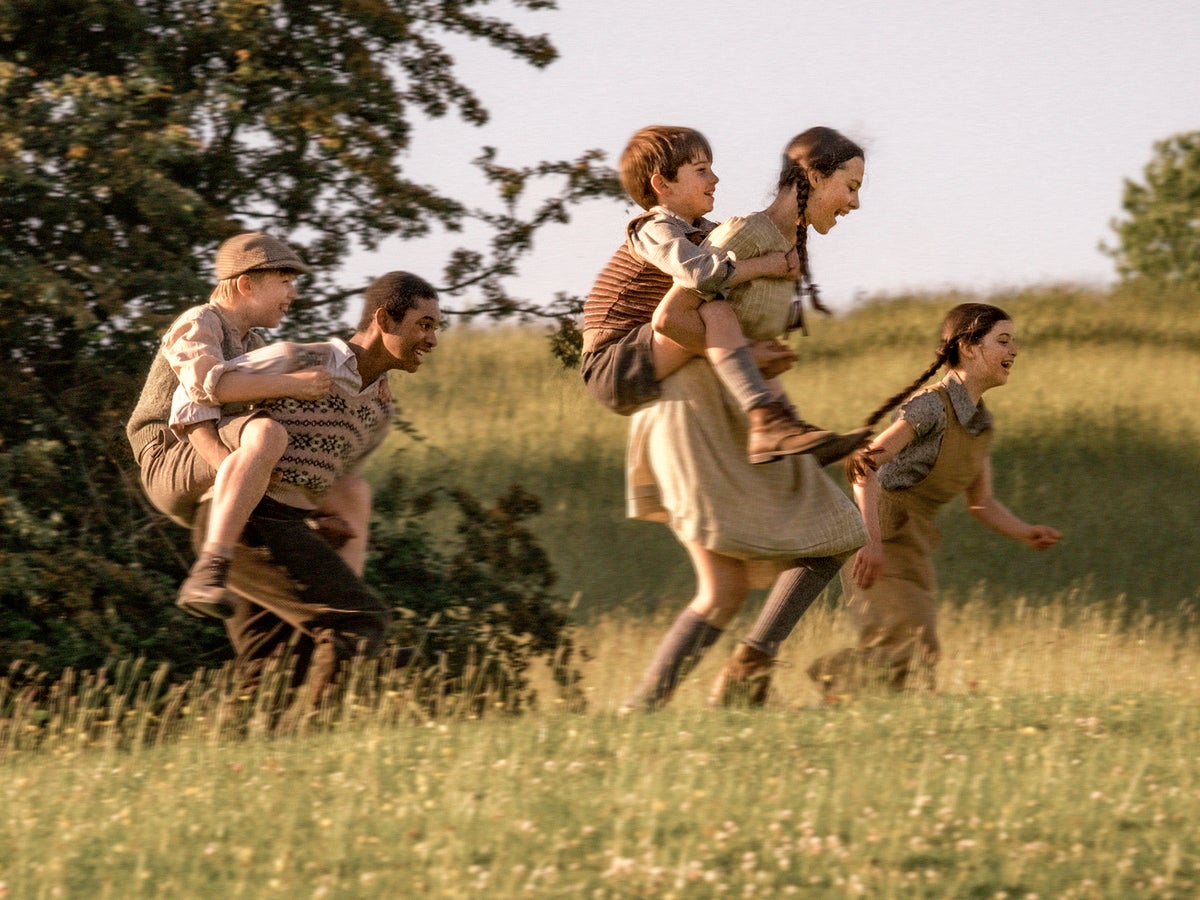
Dir: Morgan Matthews. Starring: Jenny Agutter, Tom Courtenay, Sheridan Smith, Jessica Baglow, John Bradley. PG, 95 minutes.
The year is 1944, and The Railway Children’s Bobbie (Jenny Agutter) hasn’t changed a stitch in all the decades that have gone by since we last saw her. She’s older, yes, but still with a woollen beret pinned tightly to her head and such a fire in her eyes that you’ll become convinced she could topple a mountain single-handed. Back in 1905 – Agutter was just 18 when she starred in the 1970 film adaptation of E Nesbit’s celebrated novel – young Bobbie and her two siblings, Phyllis and Peter, had been shipped off to rural Yorkshire after their wealthy father was accused of espionage. They were kept busy, befriending exiled Russian novelists and warning trains of impending landslides with lots of flag-waving and whooping. In the film’s belated follow-up, The Railway Children Return, Bobbie is asked about all of her old antics. “Not antics,” goes her stern reply. “Action.”
The sophistication of Nesbit’s original novel doesn’t come solely from its Anglo-quaintness – green hills, itchy cardigans, polite mannerisms – but from the seriousness with which she views a child’s world. Detached from their parents, who are all far too busy with their own concerns, they form their own rules, societies and sense of morality. They build their lives as they see fit. And it’s reassuring to see that kind of trust in the next generation so faithfully copied over in The Railway Children Return, especially in an age where it feels like so much of our media fails to respect the basic intelligence of younger audiences. There’s a touch of clumsiness to how it blazes through history, certainly, but it’s still so much more advanced than what we’re used to.
The Railway Children Return is part-sequel, part-remake, with a carefully selected smattering of callbacks for the fans (the children do, again, stop a train by yelling and waving at it). It was shot in the same West Yorkshire village of Haworth and Oakworth. All that’s really changed is a slight shift in perspective to adapt to the modern social consciousness. The film sees a new batch of children – Lily (Beau Gadsdon), Pattie (Eden Hamilton) and Ted (Zac Cudby) – board a train out of Salford and towards the Yorkshire countryside. They’re just three of the millions of children evacuated out of British cities during the war as bombs fell around them.
When they arrive at Oakworth station, they’re the last of the children to be invited into a foster home. Three more mouths to feed is a lot to ask of people already making such tremendous sacrifices. But Bobbie insists on taking them back to live with her daughter, Annie (Sheridan Smith), and her grandson, Thomas (Austin Haynes). They live under the banner of “keep calm and carry on”, but not in the way those words have now been twisted into a strange badge of patriotic indifference. No, these women work hard to maintain a veil of naivete for the children, so they can still thrive as children even as the world around them collapses. Screenwriter Danny Brocklehurst moves deftly between darkness and innocence, between Lily’s memories of saying goodbye to her father as he leaves to fight in the war, and the evacuee children complaining about their new carers picking their toes and farting with vehemence.
The main trio, over the course of their adventures, happen across a boy named Abe (Kenneth Aikens). He’s a Black US army private who signed up at 14 to follow his brother into war, but fled his post after a racist attack by his own regiment’s military police in a local pub. It’s an incident directly inspired by the Battle of Bamber Bridge, which took place in Lancashire in 1943. The comparatively warm reception that Black American soldiers received in the UK only increased the spotlight on the inhumanity of segregation. It helped, in its own way, to galvanise the civil rights movement.
But does The Railway Children Return actually have anything meaningful to say about race? Unsurprisingly, no. You get the sense that Abe’s plotline has been thrown in purely as an attempt to argue for the franchise’s continuing relevance. It’s a little hard to swallow the idea that these three children, hailing from a major port like Manchester, would be entirely ignorant about the existence of racism. Worst, still, is when a decorated Black general seems just as shocked by Abe’s treatment. The story here is sincere but simplified, in a way that dances perilously close to the kind of conservative, historical revisionism that works to whitewash Britain’s own racist past. Certainly, you don’t get the sense that a child watching The Railway Children Return will take anything away from the film other than a lesson in kindness and tolerance. I do worry about the adults, though.
‘The Railway Children Return’ is in cinemas from 15 July







